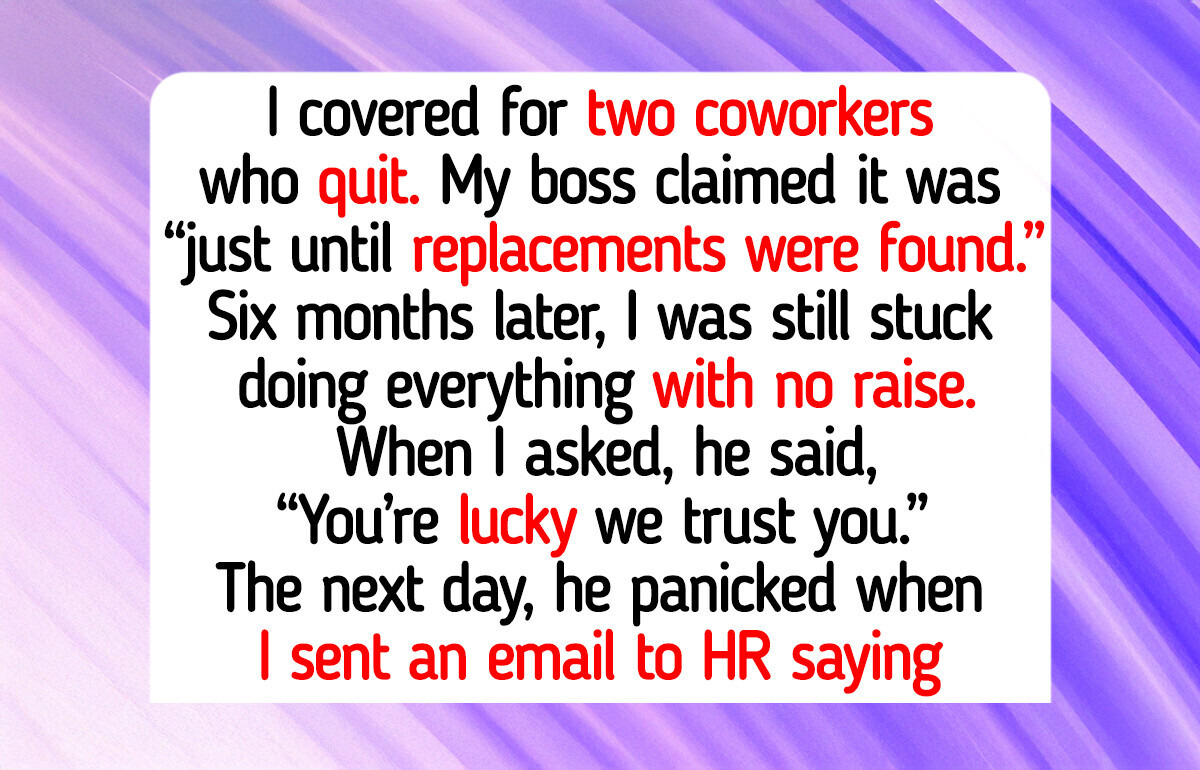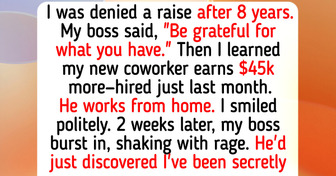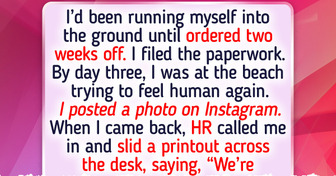why not tho
I Refuse to Do Three People’s Jobs for One Salary

“Covering for coworkers can feel rewarding until it turns into months of unpaid extra work. That’s exactly what happened to me. After handling the responsibilities of two coworkers who quit, I spent six months doing three jobs without a raise. It wasn’t until I decided to speak up strategically that things finally changed,” Sophie shared.

Hey Bright Side,
My name’s Sophie, I’m 29, and I work in an office where dedication often gets taken for granted. Six months ago, two coworkers quit unexpectedly. My boss told me and another teammate to cover their responsibilities temporarily. He promised it would “just be until replacements are found.” I agreed because I wanted to help the team, but six months later, I was still handling three roles (without any extra pay).
Finally, I decided it was time to speak up. I asked my boss for a raise, and he brushed me off, saying, “You’re lucky we trust you.” That phrase hit me hard. I realized he didn’t see my work as valuable, only convenient. The next day, I sent an email to the team, including management and HR. I explained:
“Due to staff shortages, I’ve been handling three roles for six months without additional pay. Since trust seems to replace raises here, I’m happy to extend that trust by trusting HR and upper management to review this fairly.”
Within an hour, HR called me for a meeting. Two weeks later, I got my raise. My boss hasn’t called me “lucky” since. That moment was empowering: I realized that standing up professionally, even publicly, can create real change. But I don’t know. A part of me still thinks I did the wrong thing. What do you think?
— Sophie

Nice sarcasm. Everyone knows you can't trust HR, or your boss.
Thank you, Sophie, for sharing this story. It shows that self-advocacy isn’t rude or unprofessional. It’s necessary to be recognized fairly.
1. Track Your Work and Achievements
- Keep a record of your extra responsibilities, hours, and accomplishments. Showing measurable evidence of your workload makes it much harder for managers to dismiss your request for fair compensation.
2. Communicate Strategically
- Sophie didn’t attack her boss; she explained the situation professionally and transparently. Framing your request in a way that invites HR or management to review it can help create accountability without burning bridges.
3. Set Boundaries and Know Your Worth
- Being indispensable doesn’t mean being exploited. Protect your energy and ensure your contributions are recognized. Setting clear boundaries around workload and compensation is crucial for long-term growth and mental health.

You will now stay overworked which will impact on your quality of life for a 15-20,% increase - you are replacing a full additional function/s
Check out this story about a 50-year-old woman who revealed major plastic surgery results that make her look decades younger. Her transformation is striking, showing how modern procedures can dramatically refresh a person’s appearance and boost confidence.
Comments
Why you think you shouldn’t do 3 people’s job. Be thankful you have a job, it requires some sacrifice. So just do your job even without a raise
People don't mind doing the work.They just want to get paid for their work
Related Reads
I Absolutely Refuse to Let a Newbie Make More Money Than Me After 12 Years at My Job

I Refuse to Be the Hardest Worker and Lowest Paid, Now My Boss Is Losing His Mind

12 Stories That Prove Real Kindness Is About Actions, Not Words

15 Stories That Teach Us to Stay Kind, Even When Life Turns Heavy

I Refuse to Host My Sister—I Don’t Care If She’s Homeless With 3 Kids

I Refuse to Let My Stepdaughter Return Home After She Violated My Trust

My Boss Treated Me Like a Servant Until I Finally Pushed Back

My Family Abandoned Me as a Child—Now They Want Me to Split Costs Equally

15+ People Who Went Shopping for Clothes and Ended Up Starring in Their Own Personal Sitcom

My MIL Accused Me of Ruining Her Grandkids—So I Made Her Pay Publicly

I Posted a Photo During Mental Health Leave—Then HR Called Me In

My Coworker Tried to Humiliate Me, but I Had the Last Laugh Before HR Intervened
